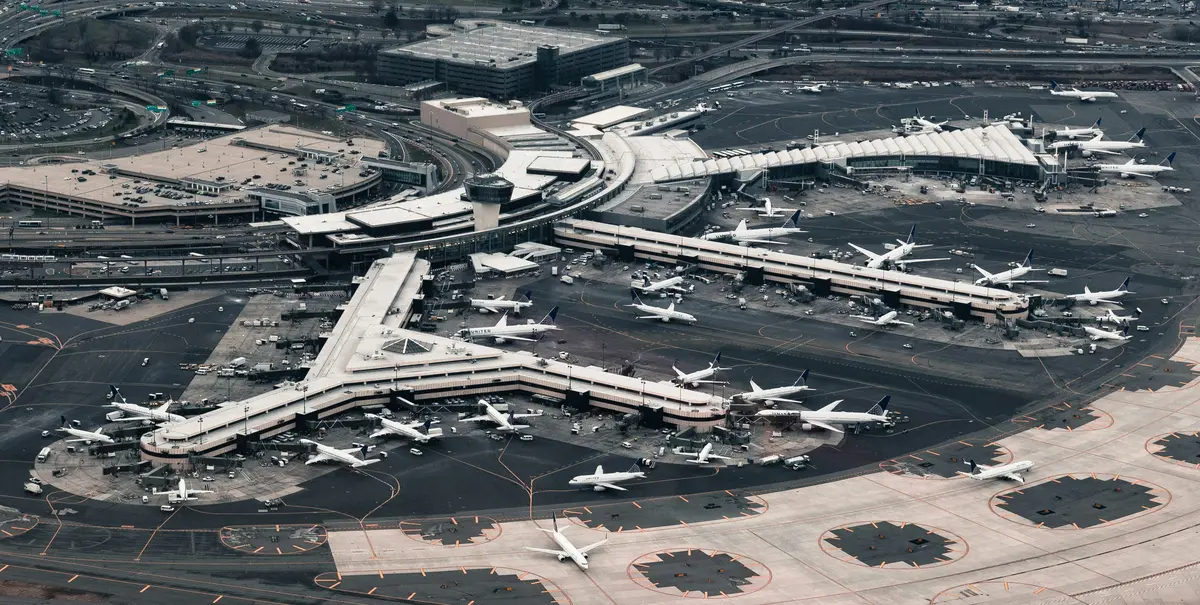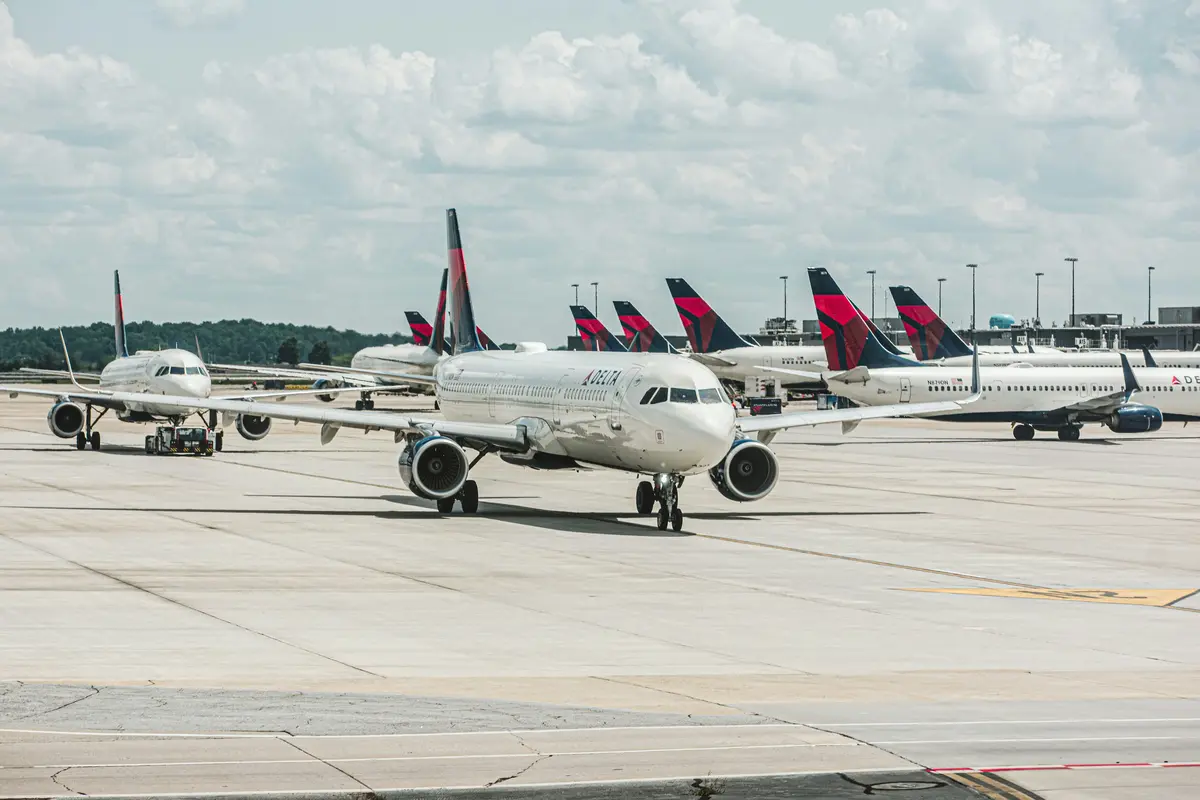How to Get a Job at Southwest Atlanta Airports – If you’ve ever dreamed about working in the aviation industry, Southwest Atlanta is one of the best places to start. With Hartsfield-Jackson Atlanta International Airport being one of the busiest in the world along with several smaller regional airports in the area, job opportunities are always opening up.
These roles range from customer service to technical maintenance, from retail to cargo handling, meaning there’s something for almost every background and skill set.
Working at an airport isn’t just about watching planes take off and land. It’s about being part of a highly coordinated system that keeps passengers moving, flights on schedule, and cargo delivered safely.
If you’re curious about how to start a career in this environment, here’s a breakdown of the process in a way that feels more like a conversation.
Understanding the Types of Jobs Available
Airports function much like small cities. Inside, you’ll find restaurants, shops, police officers, mechanics, cleaning crews, and of course airline staff. The first step is figuring out which area suits you best.
If you’re a people person who enjoys solving problems on the spot, you might enjoy working as a gate agent or at the check-in counter, roles that keep you in direct contact with travelers and require strong communication skills.

For those with a more hands-on approach, baggage handling or ramp services might be a better fit since these involve working outdoors in all weather conditions and require physical stamina. If safety and regulations interest you, security positions with the TSA or private contractors offer another path.
And if you prefer working behind the scenes, technical roles like aircraft maintenance or logistics coordination could be the right match. Even retail and hospitality positions inside the terminal such as baristas, cooks, or store managers can be a gateway into the airport world.
Researching Potential Employers
One common misconception is that everyone who works at an airport is employed directly by the airport authority. In reality, many staff members work for partner companies. Airlines such as Delta, Southwest, and United operate their own hiring processes.
Ground handling companies take care of fueling, baggage, and cleaning services. Restaurants and shops inside the terminals are often managed by third-party vendors such as HMSHost or Paradies Lagardère.
This means that if you want to find as many openings as possible, you can’t rely on a single website. The official career page of Hartsfield-Jackson Atlanta International Airport is a good start, but you should also explore the job boards of specific airlines, vendors, and service providers.
Keeping a running list of these employers and checking them regularly will give you a significant advantage over casual applicants.
Meeting the Basic Requirements
Every airport job has its own requirements, but there are some basics you should expect. Most positions require you to be at least 18 years old although certain security or driving roles may set the bar at 21.
A high school diploma or equivalent is often the minimum educational qualification, while roles in technical maintenance or security may ask for additional certifications.
Physical readiness is another factor to consider since baggage handlers spend hours lifting heavy loads and moving quickly between flights, while even indoor jobs can mean long shifts on your feet.
And because airports are highly regulated environments, every applicant must pass a background check and, in many cases, a drug test. For positions that grant access to secure areas, fingerprinting and federal clearance are standard procedures.
Preparing Your Application
When it comes to airport jobs, your resume is your first boarding pass. It should highlight any experience relevant to the role you’re applying for, even if it’s not from the aviation industry.
Customer service in a busy café, logistics work in a warehouse, or mechanical experience in an auto shop can all translate well into airport roles. Include any certifications you have such as CPR training, forklift operation, or safety courses as these can give you an edge.
Your cover letter should be short but tailored to the job. Mention why you’re interested in working at an airport and how your skills align with the specific responsibilities. Even if you have no direct airport experience, focus on transferable skills.
For example, if you’ve handled large crowds, worked in high-pressure environments, or coordinated multiple tasks at once, you already have qualities that employers value.
Finding Job Openings
To maximize your chances, look beyond the most obvious sources. Start with the airport’s official website, then move on to airline career pages. Check platforms like Indeed, Glassdoor, and LinkedIn, which often list both permanent and seasonal positions.
Local job fairs, especially those dedicated to transportation and logistics, can also be goldmines for networking and applications. Many airport jobs have a high turnover rate because of the demanding schedules, so positions can appear and disappear quickly. Setting up job alerts and checking regularly will help you apply before the competition gets too heavy.
Performing Well in the Interview
Landing an interview means you’ve already stood out from the crowd, so now it’s about proving you’re a good fit. Employers in the aviation industry value reliability above almost everything else because one late employee can disrupt an entire flight schedule.
Be ready to discuss your ability to work flexible hours including nights, weekends, and holidays. They may ask about situations where you dealt with challenging customers or worked in a fast-paced environment, so give specific examples that show you can stay calm under pressure.
Even for roles without direct passenger interaction, teamwork is critical, so be prepared to talk about how you collaborate with others. Professional attire is important as first impressions matter in such a structured workplace.
Navigating Security and Background Checks
Once you’ve been offered a position, the hiring process moves into the clearance phase. This is where patience comes in as background checks and security screenings can take anywhere from a few days to several weeks.
You’ll need to provide documentation of your work history, undergo fingerprinting, and possibly take a drug test. For roles involving direct access to aircraft or restricted areas, you must pass a federal background check.
Some employers start training while these checks are still in progress, while others wait until you’ve been fully cleared.
Training and Onboarding
Airport jobs often require specific training before you can start working independently. This could range from customer service workshops to hands-on lessons in operating specialized equipment. Safety is always a priority, so you’ll likely spend time learning emergency procedures and security protocols.
New hires are often paired with experienced employees during the first few weeks to help them adapt to the airport’s unique pace and environment.
Growing Your Career at the Airport
For many people, the role they start with is not the one they keep forever. Airports are full of opportunities for advancement. You might begin as a gate agent and move into a supervisory role, or start in a retail shop and eventually manage multiple stores in the terminal.
Taking advantage of internal job postings, seeking additional certifications, and building relationships with colleagues across departments can open new doors. Once you have experience at one location, it’s often easier to transfer to another city or even another country.
Why Choose This Path
Apart from the excitement of working in a fast-moving environment, airport jobs can offer competitive pay, benefits like health insurance and retirement plans, and, in the case of airline roles, travel perks.
You’ll meet people from all over the world and be part of a team that keeps an essential piece of our transportation system running smoothly. Every day is different, and that alone can make the job more engaging than most nine-to-five roles.
Final Thoughts
Getting a job at Southwest Atlanta Airports isn’t about luck, it’s about knowing the landscape, preparing your application carefully, and approaching the process with persistence.
If you can combine flexibility, professionalism, and a willingness to learn, you’ll be well on your way to joining the thousands of people who keep this vital hub running day and night.
With the right preparation, the next time you walk through the terminal, it could be as an insider, not just a traveler passing through.


